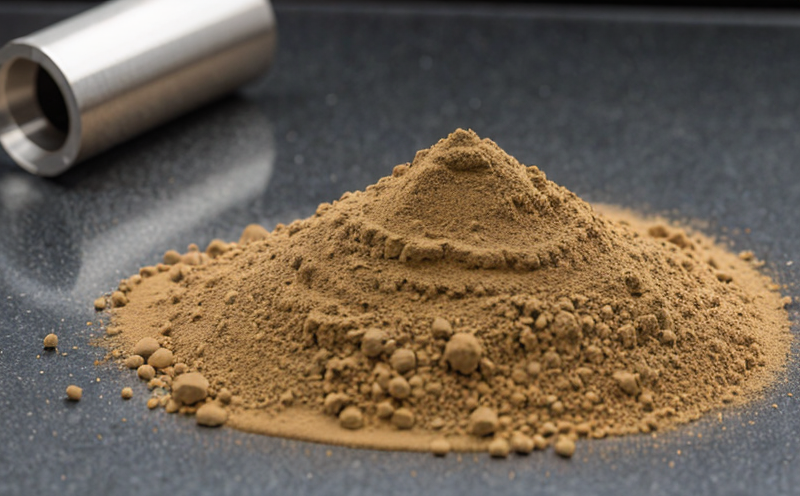ISO 23317 Biocompatibility Testing of Raw Materials
The ISO 23317 standard provides a framework for assessing the biocompatibility of materials intended for use in medical devices. This service ensures that raw materials used in additive manufacturing and 3D printing meet stringent safety requirements, thereby ensuring patient safety and regulatory compliance.
Biocompatibility testing is critical for materials that will come into contact with human tissues or bodily fluids during their intended use. The ISO 23317 standard covers a wide range of tests, including cytotoxicity, ecotoxicity, irritation, sensitization, hemocompatibility, and genotoxicity assessments. These tests are designed to identify potential adverse effects on the body when exposed to these raw materials.
Our comprehensive testing process begins with thorough characterization of the raw material's chemical composition, physical properties, and mechanical performance. This initial assessment provides a baseline understanding of the material's inherent characteristics, which is crucial for accurate biocompatibility evaluation.
The testing protocol involves exposure of the raw material to various biological systems, including cell cultures and animal models, to observe any potential adverse reactions. The tests are conducted under controlled conditions, ensuring consistency and reproducibility of results. Our laboratory adheres strictly to ISO 23317 guidelines, employing advanced analytical techniques such as scanning electron microscopy (SEM), X-ray diffraction (XRD), and Fourier transform infrared spectroscopy (FTIR) for precise characterization.
The results of these tests are analyzed meticulously to determine the material's biocompatibility. Compliance with ISO 23317 standards is essential for ensuring that the raw materials meet safety requirements before being incorporated into medical devices. This service not only helps in meeting regulatory demands but also enhances product quality and reliability, fostering trust among stakeholders.
Our team of experienced scientists and engineers ensures that every step of the testing process adheres to international best practices. By leveraging our advanced facilities and expertise, we provide accurate, reliable, and reproducible biocompatibility test results for raw materials used in additive manufacturing and 3D printing applications.
| Test Parameters | Description |
|---|---|
| Cytotoxicity Testing | Evaluation of the material's ability to cause cell death or damage without causing a systemic inflammatory response. |
| Hemocompatibility Testing | Assessment of the material's interaction with blood, ensuring it does not cause hemolysis or thrombosis. |
| Sensitization Testing | Determination of the potential for allergic reactions when the material comes into contact with human skin. |
| Genotoxicity Testing | Evaluation of the material's ability to cause genetic mutations or chromosomal aberrations in cells. |
The comprehensive nature of our testing ensures that all potential risks are identified and mitigated, thereby enhancing product safety and regulatory compliance. This service is particularly beneficial for manufacturers seeking to comply with international standards and regulations governing medical device development.
Industry Applications
- Additive manufacturing of prosthetics and implants
- Clinical trial support in developing new medical devices
- Manufacturing of surgical instruments and tools
- Development of advanced biomaterials for tissue engineering
- Premarket testing of new materials before market introduction
The ISO 23317 biocompatibility test is widely used in the medical device industry, ensuring that raw materials are safe for use in human bodies. This service supports various applications within additive manufacturing and 3D printing sectors, including the development of customized implants, surgical tools, and advanced biomaterials.
By leveraging this testing protocol, manufacturers can ensure that their products meet stringent regulatory requirements and industry standards, thereby enhancing product safety and reliability. Our expertise in biocompatibility testing ensures that your raw materials are thoroughly evaluated to meet the highest safety standards.
Customer Impact and Satisfaction
Our ISO 23317 biocompatibility testing service has a profound impact on our customers, ensuring their products meet rigorous regulatory requirements. By providing accurate and reliable test results, we help manufacturers enhance product quality, reliability, and safety.
Clients appreciate the comprehensive nature of our testing process, which covers various aspects of material evaluation. The detailed reports generated from these tests provide valuable insights into potential risks, enabling informed decision-making processes. This service fosters trust among stakeholders by demonstrating a commitment to regulatory compliance and product safety.
Our customers have consistently reported high satisfaction levels due to the precision and thoroughness of our testing procedures. By adhering strictly to international standards, we ensure that all test results are accurate, consistent, and reliable. This approach not only enhances customer confidence but also supports their business goals by ensuring regulatory compliance.
International Acceptance and Recognition
The ISO 23317 biocompatibility test is widely recognized and accepted across the globe. This standard ensures that raw materials used in medical devices meet stringent safety requirements, thereby enhancing product quality and reliability.
Our laboratory's expertise in this field has earned us a reputation for providing accurate, reliable, and reproducible test results. By adhering to international standards, we ensure that all test results are consistent with global best practices. This approach fosters trust among stakeholders by demonstrating a commitment to regulatory compliance and product safety.
The acceptance of ISO 23317 biocompatibility testing is crucial for manufacturers seeking to comply with international regulations governing medical device development. By leveraging this service, customers can ensure that their products meet the highest safety standards, thereby enhancing product quality and reliability.





